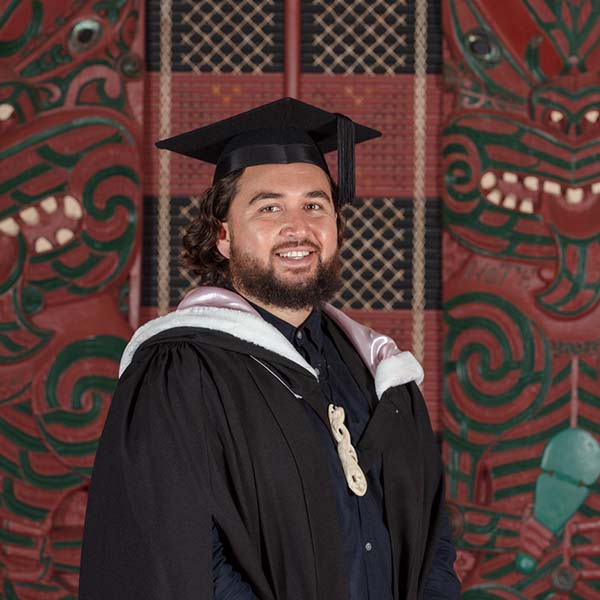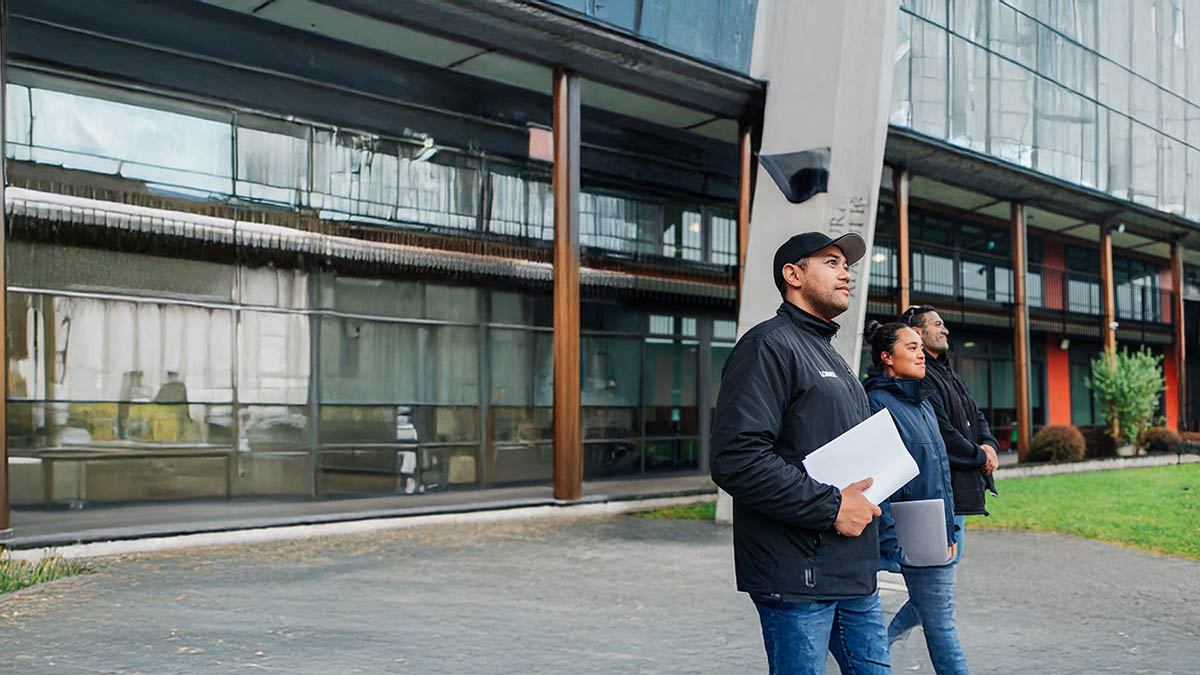Te Tohu Toi Tangata - Bachelor of Humanities
Humanities degree shapes fresh approach to work with rangatahi
Derek Ereatara was brought up at a full immersion kaupapa Māori kura before transitioning to a mainstream school in Whakatāne.
The move from Te Wharekura o Rūātoki to Whakatāne High School was an enormous challenge for the Ngāi Tūhoe teenager whose English skills and literacy were minimal.
“It was 15 years ago, but it only feels like yesterday,” he says.
It was his kaupapa Māori-based form class Te Aka Matua that pulled him through.
“We had karakia, waiata, kapa haka and there was tuakana-teina support. It made me feel safe and secure. Whakawhanaungatanga was the key word. We were really tight, so tight that others wanted to join our form. To this day, we’re really close friends.
“The school did well to improve students’ confidence and bring us out of our shells. The teachers wanted the best for us and our form teacher helped with everything whether it was school related or not.”
Choosing kaupapa Māori for his tertiary journey was therefore an easy decision.
Given the chance to study for a degree while continuing to work fulltime, Derek went looking for a Bachelor degree that could bring both personal and professional development.
“When my mahi, Tūhoe Hauora, offered me the opportunity to study, I told myself that if I was going to upskill my professional portfolio I wanted to do it through a kaupapa Māori whare wānanga. I am very grateful that Tūhoe Hauora supported me through my degree with funding and time off work to attend wānanga.
“My partner was studying for a Bachelor of Humanities degree at Te Whare Wānanga o Awanuiārangi, and all the conversations she was coming home with were interesting.
“The content – indigenous studies, policy and business – fit right in with what I wanted. I knew it would help me with my own outlook personally and in my work with whānau in the health sector.
“Once we got into the nuts and bolts of indigenous studies and issues such as identity and decolonisation, I realised that the entire programme of study was working hand in hand with my mahi as a hauora practitioner.
“It provided tools that related directly back to my mahi and helped in the work to deliver better outcomes and solutions for whānau.”
The Bachelor of Humanities programme marked a turning point in Derek’s life.
“It opened my eyes. It helped me to think differently and to understand that there are also many other ways of thinking. That opens up your world view. The view I have about things may not be the right way or the only way. It has shaped the whole way I look at a kaupapa,” he says.
Looking at everything with fresh eyes “shifted, enhanced and reinforced” his focus, particularly in working with rangatahi who need one-to-one support.
“It showed me that I can make a difference in developing programmes that help our whānau, in particular helping rangatahi to decolonise their way of thinking and re-learn the tools that our tūpuna have handed down to us.
“For example, as a physical activity and nutrition practitioner in Tūhoe and surrounding communities, I teach our rangatahi taonga tākaro – games our tūpuna used to play as alternatives to modern games. It’s teaching a kaupapa not just a sport. There was more mana to these traditional games than just sport.”
Knowledge and approaches such as this help ground rangatahi within their identity, he says.
“It is the same with kai – nutrition. I talk to kids about kai as a kaupapa, not just food. Relating complex concepts such as processed or unprocessed foods back to kaupapa Māori brings rangatahi to another level of understanding, not just about the kaupapa but about who they are.”
Te Whare Wānanga o Awanuiārangi was definitely the right choice for study, Derek said.
“It was like a second home, and still is. You just feel welcome. And as well as the manaakitanga and whakawhanaungatanga, the facilities at Whakatāne for day-to-day study and noho are awesome – everything is there for you. It is the best place to get a degree.”

Derek who completed his Humanities degree in 2019 is a kaimahi at Tūhoe Hauora
Kimihia he huarahi ako
What can you study?
